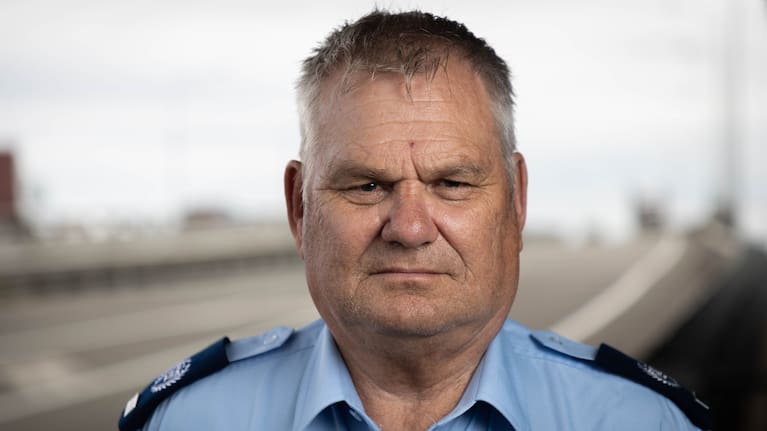A picturesque Tauranga waterfront neighbourhood is being ruined by drug use and cars doing burnouts and skids, a resident says.
Owners of prime real estate on Harbour Drive in Ōtūmoetai are experiencing the issues daily, said homeowner Matt McHardy.
“The primary issue residents have is really focused around safety and serenity of the waterfront.”
McHardy said drug use and deals happened in cars parked on the grass verge across from homes.
Up to six cars would park up together and pass what he believed were drugs between the vehicles, he said.
Some cars would leave, and others would stay and the people inside would use drugs, McHardy said.
“This is a pattern of behaviour that’s been happening up and down the waterfront for years.”
The drug use was happening at all times of the day – even 2pm on a recent Saturday afternoon, he said.
There were also issues with cars speeding and doing skids and burnouts on the road and grass berm, McHardy said.
A narrow shared pathway ran along the waterfront and was used by walkers, cyclists and families.
There was no barrier between the pathway and berm, and he worried someone using the path could be seriously injured by a vehicle.
“It’s a melting pot of legitimate road users and people that are breaking the law.
“When you put legitimate users alongside people that are using drugs and abusing their vehicles, I can only see one outcome from that at some point. That’s going to be a monumental disaster that no one wants to see.”
Residents wanted more police monitoring of the area and for Tauranga City Council to prevent cars parking on the berm by installing a barrier, McHardy said.
He had contacted the council regularly about his concerns since moving to the street in May 2022, and spoke at a council meeting in July.
Another Harbour Drive homeowner, who did not want to be named, said he regularly had cars speeding past his home.
“People are coming around the corner, seeing the way is clear and planting their boot, making a lot of noise doing it and potentially endangering pedestrians [and] cyclists.”

He lived there for four years and said the speeding happened almost daily.
He couldn’t tell how fast drivers were going as they reached top speed further down the road.
“My gripe is the noise, the idiocy of it, the antisocial aspect.”
The beachfront and path were very well used community amenities, he said.
There weren’t the same issues of drug use outside his home because it was well lit and cars couldn’t park on the berm, he said.
Harbour Drive neighbourhood support co-ordinator Fiona Ritsma said speeding vehicles were a major concern for residents.
She encouraged people to report speeding to police but said some people were reluctant to bother them.
Ritsma said she had asked the council for speed humps or traffic calming measures many times.
“Relying on police enforcement to address the issue is not realistic and is the proverbial ambulance at the bottom of the cliff.”
A “proactive” solution to deter speeding was needed.
“We do not want to wait until there is a serious accident or fatality before we get council action.”
After pressure from residents, the council installed a CCTV camera in April 2023.
This deterred the antisocial behaviour for a short time, but it started again, Ritsma said.
Western Bay of Plenty road policing manager Senior Sergeant Wayne Hunter said police were aware of concerns among a small number of Harbour Drive residents and had regular dialogue with them.

Two weeks ago, police impounded two vehicles for driving with sustained loss of traction, or burnouts, and moved several carloads of people on, he said.
Police were grateful to residents who provided details about speeding vehicles, and staff made contact with repeat offenders, Hunter said.
“Police cannot be everywhere at once, but we also rely on members of the public to report matters to us to help determine our deployment decisions.”
Council head of transport Mike Seabourne said the Harbour Drive residents’ concerns were noted.
After McHardy’s presentation to the council, staff were working on options to take back to the councillors in October, he said.
“We really appreciate the feedback from the community – it’s being looked into, and the options we present will include those put forward by residents.”
LDR is local body journalism co-funded by RNZ and NZ On Air.












